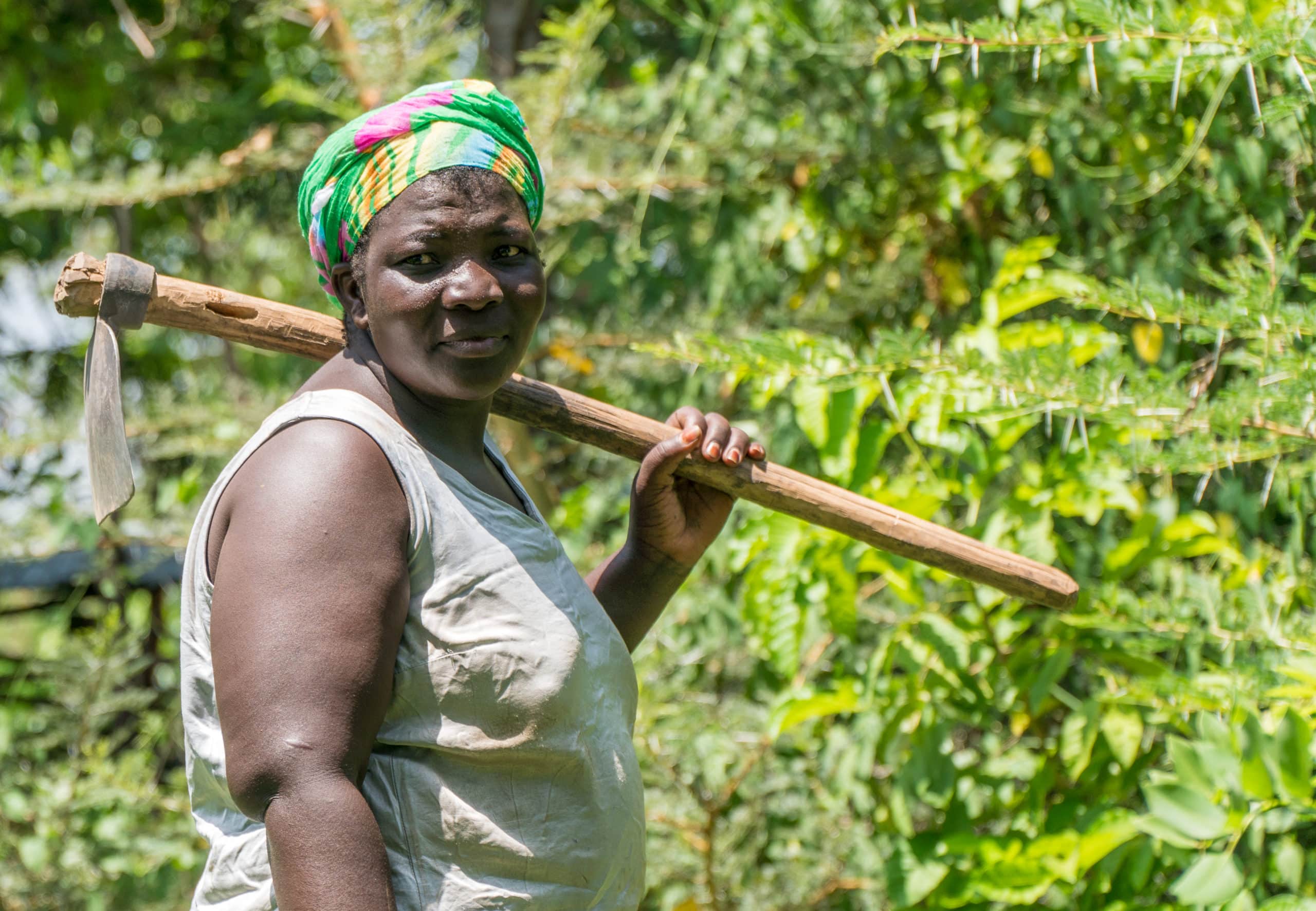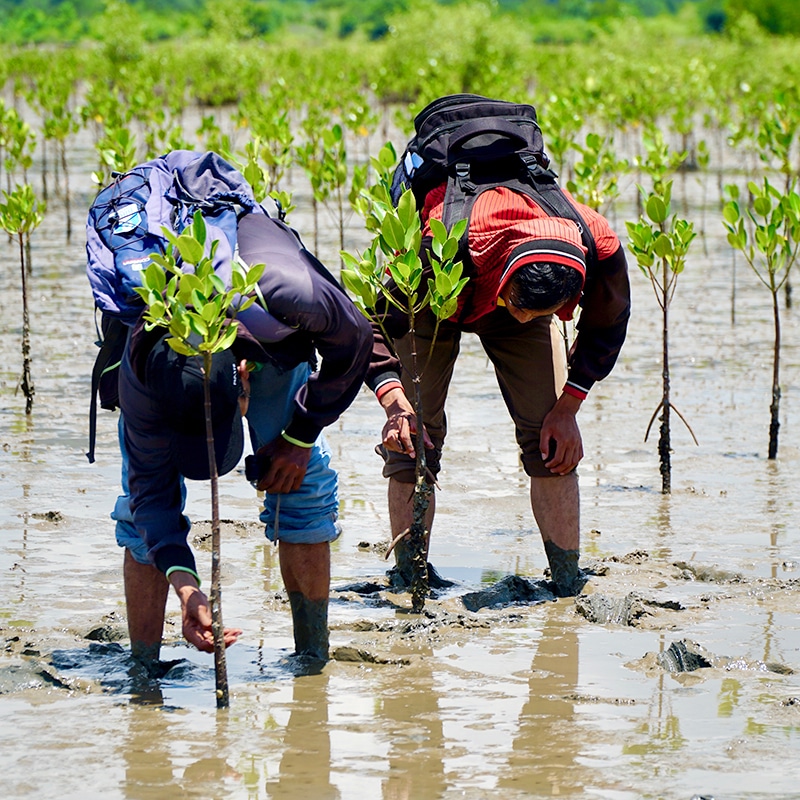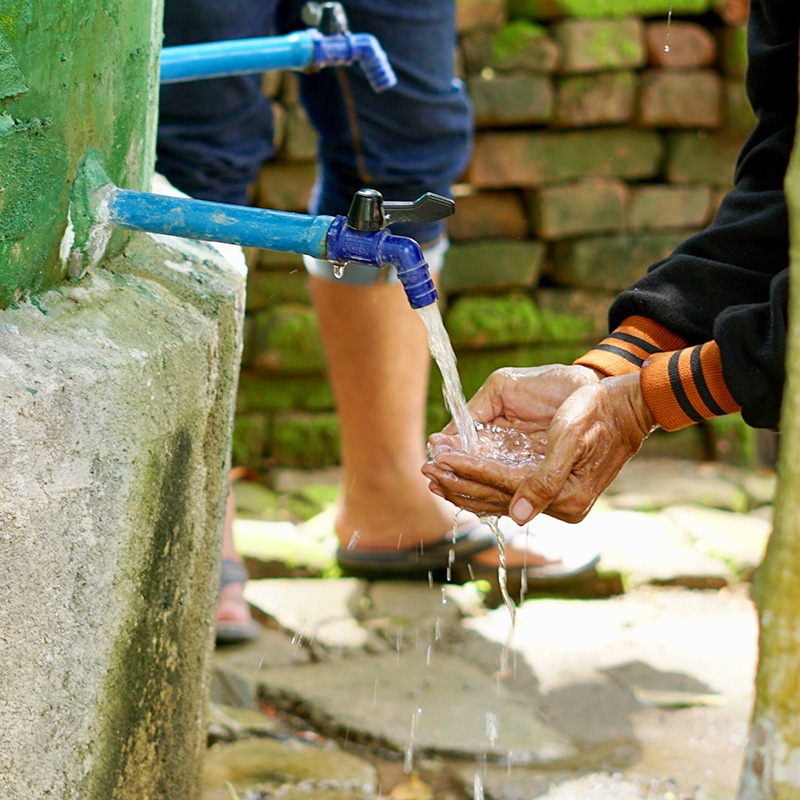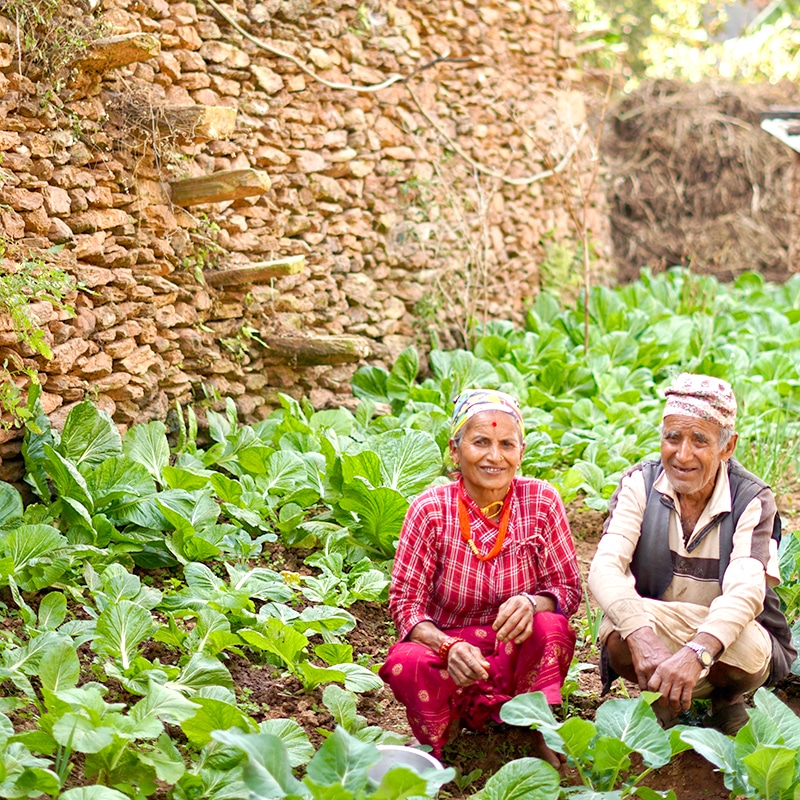COMMUNITY-BASED NATURAL RESOURCE MANAGEMENT
Community-based natural resource management (CBNRM) is a people-centered approach to the integration of conservation of the natural resource base (water, soil, trees and local biodiversity) and development to overcome poverty, hunger and disease.
We treat the physical environment as part of the community and see the community as part of the landscape. Recognizing the interdependence of community well-being and ecosystem health, World Neighbors strengthens the capacity of communities to have a voice in decisions about planning and design of conservation initiatives affecting them.
The natural environment plays a huge role in the health and welfare of people who rely on it as their sole source of income and food. This is the case for many across the globe who live in remote villages with little access to outside markets. They depend on the land to provide them with enough food to feed their families through the year and enough money so that they can afford medical care, clothing and shelter.
Due to changing climates, environmental damage from slash and burn farming, the overuse of pesticides and many other causes, people who depend on the land for their livelihoods are suffering. Changing climates often make ecosystems less predictable, leaving people that rely on those ecosystems vulnerable. World Neighbors recognizes this and works to help people adjust to changes.


Key elements of the approach include:
- Multi-stakeholder collaboration that involves all participants, from communities, to government, to NGOs, and promotes coordination among them.
- Conflict management mechanisms – support processes to manage natural resource conflicts among stakeholders.
- Participatory action research – collaborative fact-finding and analysis generates a mutually agreed upon perspective for action.
- Strong local organizations, such as forest-farmer groups and inter-village networks are built from the bottom-up.
- Livelihood improvement and environmental services. We work to sustain environmental conservation by linking it to farm and community enterprises. Provide opportunities for reinvestment by linking upland environmental services to lowland and urban communities.
- Policy support and law enforcement are essential to curbing illegal encroachment leading to ecosystem degradation.
- Collaborative management plans – build shared responsibilities and decision-making among all stakeholders through joint management plans of natural resources. This leads to healthy communities and ecosystems.
- Participatory monitoring and evaluation – promote learning, trust and accountability through monitoring of the natural resource base and application of the management plan.
- Gender and social justice in access to, and control of, natural resources is the ultimate measure of the sustainability of community-based natural resource management efforts.
Climate Change
World Neighbors communities are each affected by climate change in unique ways. Whether it is retreating glaciers in Peru or coastal erosion and tropical cyclones in Indonesia, World Neighbors is committed to understanding the changing climate and helping our communities adapt.
Clean Water is Key
A priority for all World Neighbors programs is for families to have access to clean drinking water and water for farming and livestock. Access to clean water and sanitation is a fundamental need and human right which plays a vital role in improving health conditions and encouraging social and economic development.
Clean water is the key to successful development. Crops cannot reach their full potential if communities’ water sources are distant, meager or contaminated. Health care services may be available nearby, but if the clinic does not have a source of clean water or proper sanitation, then its capacity to effectively heal is greatly diminished. Families may be eager to adopt practical and proven techniques for improved hygiene and sanitation, but they are unable to do so without water.
One of the unique ways World Neighbors addresses the issue of water in communities is to work with the community on the management of the water system. This community involvement applies to all aspects of a water project, including the maintenance and repair of the physical system; the management of the distribution of water; conservation of the land around the water source, and concrete financial and governing rules about the water program. Combined with education on hygiene, food preparation and clean water for good health, World Neighbors water projects are long-lasting and are maintained by the community members.

Finding Alternatives to Pesticides
Every year thousands of men, women and children are exposed to highly toxic pesticides, leading to permanent damage to their eyes, skin and central nervous systems. These chemicals are often stored inside of homes, prepared in open drums and applied using leaky backpack sprayers. Worse yet, children are frequently poisoned when they mistake these pesticides, which are sometimes stored in bottles, for soft drinks.

Although international manufacturers say that they are concerned about the careless use of pesticides, their studies show that safe use is difficult, if not impossible, to achieve in rural villages of developing countries. Nevertheless, they continue to aggressively sell even the most toxic products there. But many countries lack the legal institutions and democratic political processes to confront the influential agro-chemical industry.
The dangerous pesticide situation in developing nations is dire but it’s not without hope. Organizations such as World Neighbors, the International Potato Center, and the United Nations Food and Agriculture Organization are promoting an innovative methodology called Farmer Field Schools that train farmers in sustainable agriculture methods that seek to decrease dependency on agrochemicals while increasing productivity.
Many of World Neighbors’ programs overlap. Resource management and sustainable agriculture are closely linked because they both revolve around the idea of responsible stewardship of local resources and ecosystems. Our holistic approach to a community’s needs means that supporting sustainable agriculture often means promoting community based resource management.
